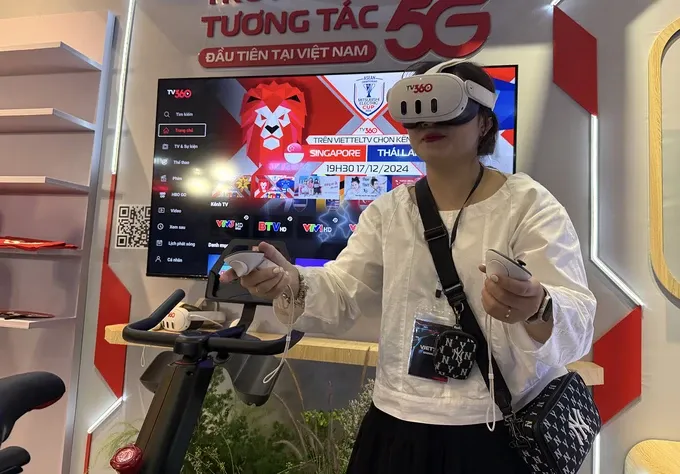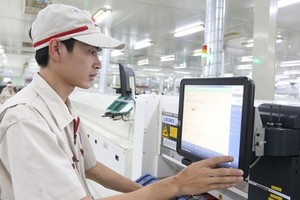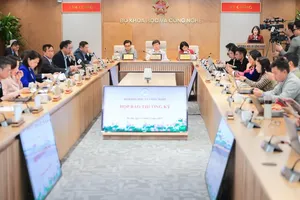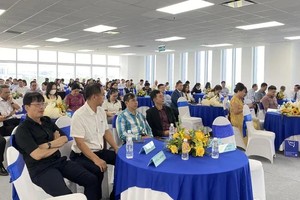
Forecasting 5G’s trajectory in Vietnam and the broader region, Nokia’s Director of Mobile Solutions Pham Van Minh anticipates robust growth in 5G deployment in the coming years, projecting that 5G data traffic will surpass 4G as early as 2025, thereby becoming a key driver of economic activity and unlocking new business opportunities.
“5G represents the fastest-evolving mobile technology currently, poised to handle over half of all global data traffic by 2025. By optimizing network infrastructure and enabling new service delivery, 5G is forging novel business models, and enterprises must capitalize on this transformative shift,” asserted Director Minh.
Similarly, Deputy General Director Nguyen Trong Tinh of Viettel Telecom affirmed that as a leading telecommunications provider, Viettel remains committed to expanding and enhancing its 5G infrastructure to meet the escalating demands of consumers, businesses, and society. Furthermore, Viettel pledges to collaborate with enterprises in developing a comprehensive and sustainable digital ecosystem, integrating AI, IoT, and cloud technologies into all facets of life.
In late December 2024, VNPT Group announced the commercial launch of its 5G network. Mobile users immediately experienced the superior speeds of VinaPhone 5G when utilising bandwidth-intensive, low-latency applications such as cloud gaming, e-commerce livestreaming, augmented/virtual/extended reality (AR/VR/XR), 4K/8K/360° video streaming, and social media. Notably, both households and businesses can leverage 5G receiver devices to establish high-speed Wi-Fi networks in homes and offices.
VinaPhone 5G also offers a suite of advanced solutions, including Private 5G Networks (tailored to specific requirements for speed, latency, connection density, and integrated solutions), Network Slicing (customizing 5G bandwidth allocation based on user needs), and Open RAN 5G (integrating diverse modern technologies to develop industry-specific solutions), designed to empower organisations and businesses to achieve significant operational breakthroughs.
In the medical field, the ultra-fast data transmission speeds as well as exceptionally low latency of 5G technology promise to revolutionize healthcare delivery, enabling significant advancements in diagnostics, treatment, and patient care. For instance, the transmission of X-ray and MRI images via 5G networks will enable remote expert consultations, enhancing diagnostic accuracy. Similarly, ambulances equipped with high-speed 5G connectivity will facilitate real-time updates of patient medical records en route to medical facilities.
At a recent 5D Day event hosted by Viettel in HCMC, technology experts showcased MedStation – a remote medical examination and treatment system. Deployed as kiosks in locations such as health centres and pharmacies, MedStation addresses the scarcity of accessible healthcare services in the community. These kiosks are equipped with comprehensive diagnostic tools and direct 5G connectivity, including video conferencing, vital signs monitoring (e.g., blood pressure and heart rate), and various diagnostic imaging modalities.
“Thanks to the capacity to connect multiple devices concurrently at speeds ten times faster than 4G, the 5G technology facilitates the most effective operation of health monitoring devices, supporting decentralized healthcare management. Consequently, user experience is enhanced, and remote patient care capabilities are significantly improved,” stated CEO Bui Le Ha of MedOne Digital Technology and Healthcare JSC., part of the Medlatec Healthcare System.
The integration of 5G into education also holds immense potential to transform teaching and learning methodologies. 5G facilitates the seamless creation of digital libraries, granting students access to vast repositories of knowledge (including books, articles, videos, and audio) via smartphones or tablets.
Intelligent search tools empower students to retrieve information rapidly and accurately. Furthermore, 5G unlocks the potential for virtual science experiments, enabling students to safely and effectively observe and interact with scientific phenomena.
According to Director Vo Thi Trung Trinh of the HCMC Digital Transformation Center, the commercialization of 5G services will provide a substantial impetus to the digital economy, accelerating the development of public administrative services and the operations of businesses across numerous sectors.
With the deployment of ultra-fast, low-latency 5G networks, HCMC aims to achieve 90 percent broadband internet penetration among households by 2025. The city is actively encouraging businesses to invest in digital infrastructure and provide IT solutions in key sectors such as healthcare and education.
























